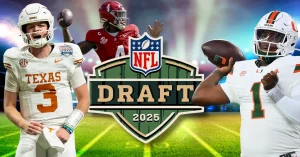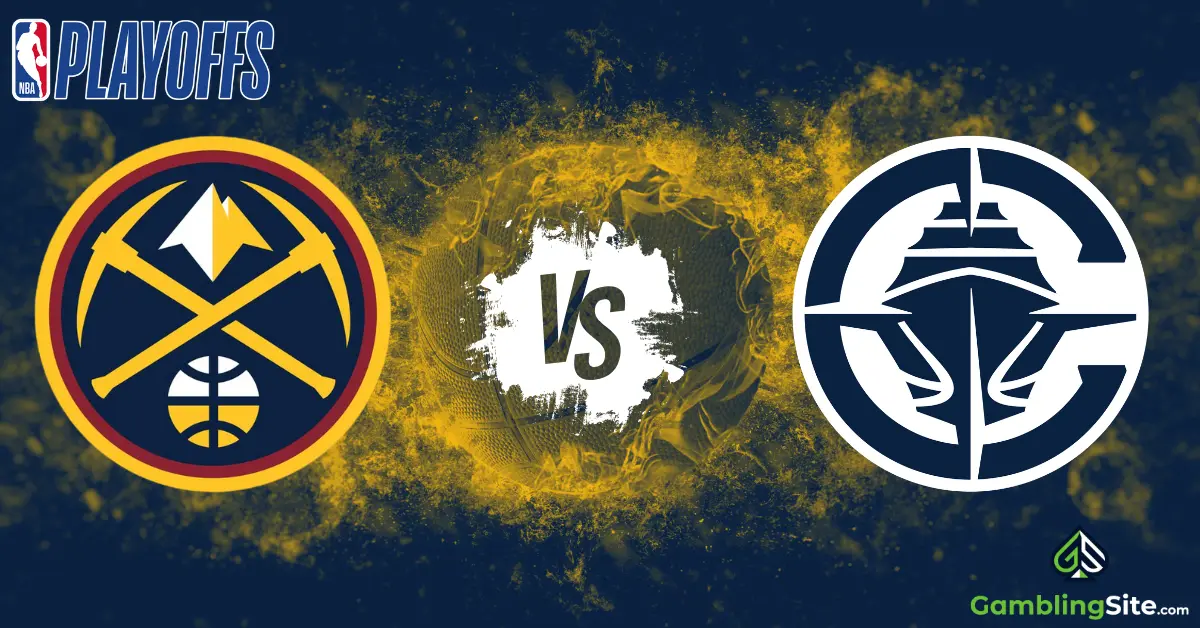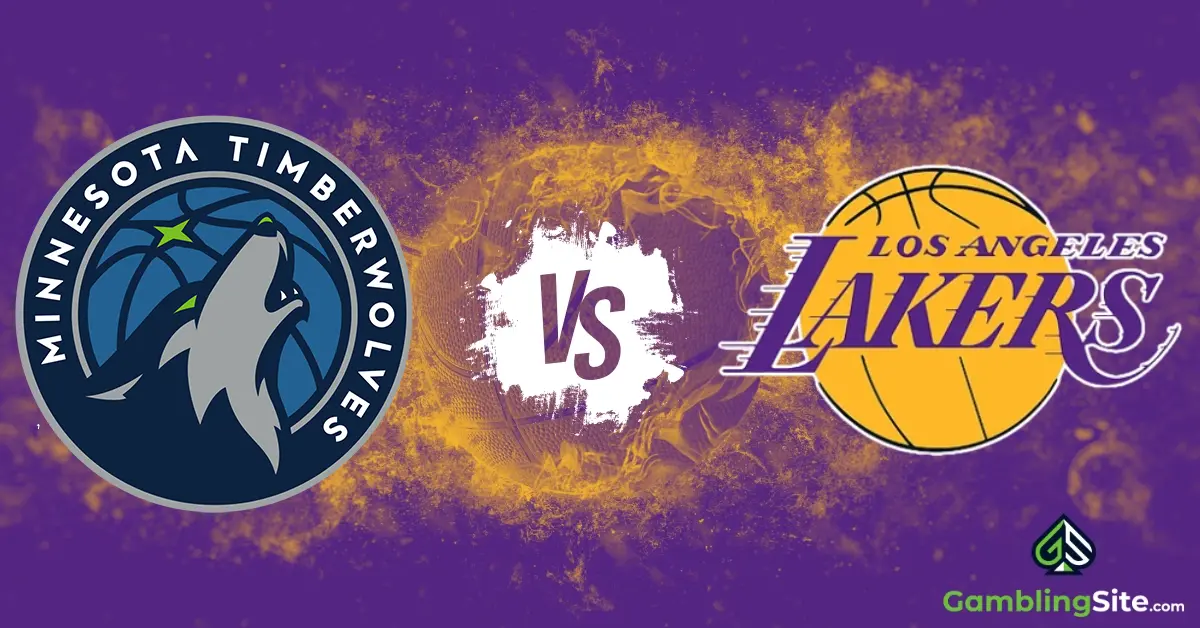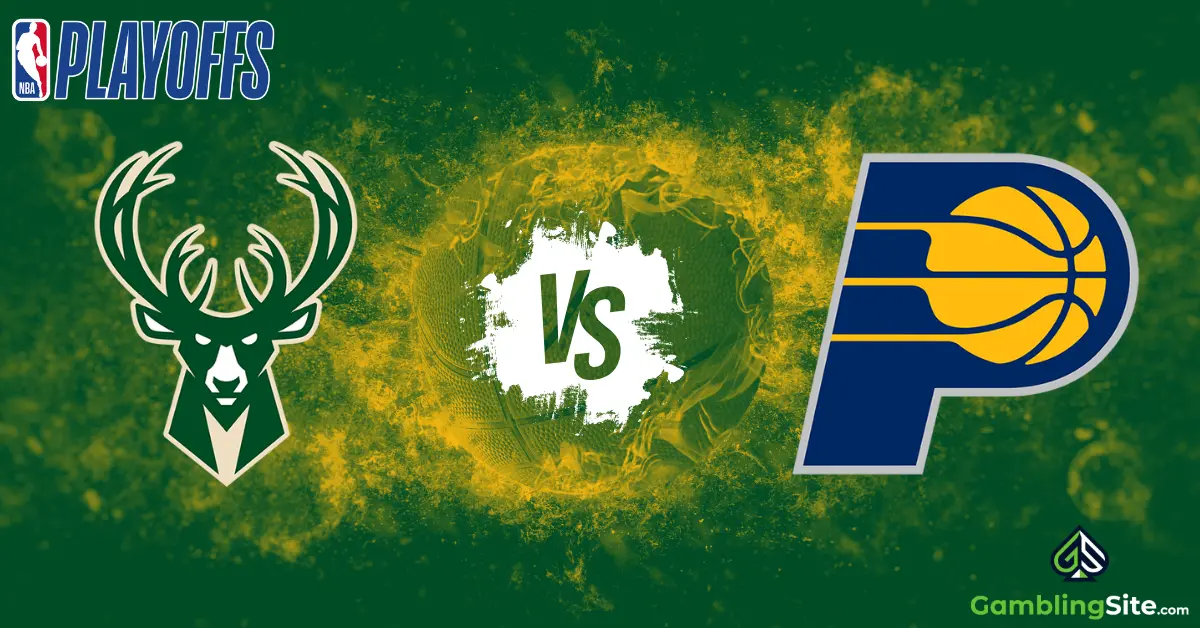Fantasy vs. Reality | How Fantasy Sports Players Can Transition to Successful Sports Bettors
Suppose you regularly play fantasy contests but have never bet on sports. In that case, you can make the switch easily because there are a few valuable skills that fantasy sports bettors pick up along the way that can help them get their feet wet with traditional sports betting, namely finding value, using research, and informing decisions based on external factors. You can easily leverage these skills to find value in the sportsbooks and place sports bets rooted in data/research on your slips.
There’s still a lot to learn about online sports betting if you’re brand-new because there’s so much to know to fully understand sports betting techniques, strategies, and how it generally works. We’ll outline some of the most essential information you need to know about sports betting if you’re coming over from the fantasy camp, like solid bankroll management, analyzing data, and learning how odds work on sports bets.
Understanding the Similarities
Although daily fantasy sports and regular sports betting are two very different things, there are some common elements like player performance analysis, statistical research, and the importance of game context. But to better understand the similarities between these two forms of online gambling, we’ll explain how each works in greater detail in case you’re not familiar with them.

How Sports Betting Works
Regarding regular sports betting, you’re putting down money on a specific outcome. Odds are given for both sides (the likelihood of either outcome occurring), and bettors choose the odds they feel have the best chance of being the final winning result. Your payout will differ based on the odds and which side you staked your wager on.
There are several ways to place sports bets, including money lines (betting on the winner of a game), point spreads (betting on the final margin of victory), over/under totals (betting on the final combined score), parlays (combining two or more bets into a single bet), and props (betting on occurrences or non-occurrences in a game).
Sports bettors typically place bets using regulated sports betting apps available in select states nationwide. Each sportsbook has its bookmakers who put out unique odds and payouts, so bettors can check odds and payouts at multiple sites to find the best value.
Pros
- Sports betting offers a broader range of betting opportunities than daily fantasy sports: money lines, over/under totals, point spreads, parlays, and props.
- Different bet types come with their odds and potential payout, giving bettors many creative ways to make money betting on sports.
- Sports betting offers more markets to bet on. You can enjoy the most popular leagues like the NFL, NHL, MLB, NBA, and MLS. Plenty of niche markets are found at online sports betting sites, such as Aussie Rules, Formula 1 Racing, rugby, cricket, lacrosse, snooker, etc.
- There are many more sportsbook options in the United States than at daily fantasy sports sites.
- Sports betting apps have lower overall commissions. Most bookmakers collect a vig of 10%, but bettors can run that percentage down to 5% if they make good bets that consistently beat the closing line value.
Cons
- Sports betting comes with many terminology, techniques, strategies, betting styles, bet types, payout structures, and bankroll management practices that can make it difficult for many people to understand.
- Getting good at finding decent odds and value is a time commitment. You need to learn how to pinpoint these things to bear the bookmakers and continually make a profit over time. Not only does it take time to learn how sports betting works, but it also takes practice to spot good deals and make a long-term buck.
- While sportsbooks generally operate on lower commission rates, they also feature lower betting limits. This could be good for some bettors who want to manage risk, but it poses a problem for bettors with a more aggressive approach who wish to make a lot of money.
- While 38 states and the District of Columbia have legalized sports betting within their borders, sports betting is more limited across the US. DFS betting apps like FanDuel and DraftKings cover far more states. US citizens without access to regulated sports betting options must turn to offshore platforms.

How Daily Fantasy Sports Work
In daily fantasy sports betting, a fantasy player will pay an entry fee to participate. They form a team of their own, but they are given a salary cap (budget) to work with when choosing players for the team. This is used to prevent players from choosing only top-tier competitors. Once your team is assembled, you earn fantasy points when those players make runs, sack other players, or score. DFS usually caters to more significant leagues like the NHL, NFL, or NBA—you won’t typically find contests for sports like snooker or handball.
How you get paid for your team’s performance depends on which kind of tournament you’ve joined because DFS sites don’t have fixed odds from a bookmaker. If you joined a game where your entry fee was only $1, you’ll earn less money or prizes when your fantasy team wins than in a tournament where you paid an entry fee of $1,000.
They are called daily fantasy sports because the matchups occur over a short period, like a single day or weekend. Your opponents will change as you go between different DFS games, but you’re going against the same pool of participants each day. It’s possible to enjoy multiple matches within the same day but go against a different lineup each time.
Pros
- Daily fantasy involves research into the players you choose for your team, but the learning curve of how it works is much easier to pick up than regular sports betting. You’re not dealing with fixed odds, either.
- You have a better shot to win using DFS sites. Your competition in DFS is other participants who likely have the same skill and knowledge as you. You’re not going against a bookmaker who lives and breathes sportsbooks and will likely come out on top over most bettors.
- DFS offers its players a lot of flexibility when joining multiple lineups per day.
- DFS betting sites are more widely available across the United States, though coverage will vary based on each platform. The best coverage by far is DraftKings, which can be used in 44 states!
Cons
- Though you can join multiple lineups daily using DFS sites, they don’t offer nearly the action you find with sports betting, both in sports markets and the kinds of bets you can place.
- DFS is primarily confined to two large platforms: FanDuel and DraftKings. Regular sports betting has many more operators, giving bettors a wider range of odds from which to choose.
- If you’re beating the closing lines on the sportsbooks more often than not, you can drive the vig percentage from 10% down to 5%, which saves you from more money leaving your account balance. DFS sites add a 10% commission to each buy-in for winning and losing matchups.
- DFS betting sites aren’t as lucrative as the action you find at online sports betting sites. You’ll make much more money with regular sports betting if you place intelligent bets rooted in sound research and are chock full of value.

Fantasy Skills That Translate to Sports Betting
Several skills fantasy sports players already possess that can be beneficial in sports betting, so the transition shouldn’t be too difficult if you know what you’re doing and you’re willing to learn.
- Working on a salary cap to draft the best players is similar to managing an online bankroll at a sports betting site.
- Fantasy requires some research on individual players to form a successful DFS team. You’ll need to research when you bet on sports, examining past performance or historical data.
- Fantasy sports bettors must monitor things like player injuries/suspensions, weather conditions, and other factors that regular sports bettors consider to inform their bets.
While you need to have far more knowledge to be successful with sports betting, the skills players gain through daily fantasy sports provide a solid basis for anyone interested in getting into sports betting for the first time. DFS can help you spot value, do research to inform your strategy, and keep an eye on external factors that may affect the outcome of a game or competition.

Key Differences to Acknowledge
Before we dive into the differences between daily fantasy sports and regular sports betting, let’s quickly review how each of these works once more:
- In sports betting, you’re staking money on a particular outcome. You get odds for both outcomes, representing the likelihood of that outcome occurring. If you’re correct in your predictions, you get paid out in real money.
- Fantasy isn’t focused on betting on a direct outcome the way traditional sports betting is set up. Fantasy contests involve players paying entry fees and creating a fantasy team. If the team does well, that player can earn money or other prizes based on their team’s performance.
Now that you’re up to speed on how fantasy sports and traditional sports betting work let’s check out the main differences between these forms of gambling. These are important to note to understand the magnitude of this transition from DFS betting to regular betting.

How is DFS Different From Sports Betting?
- Regular sports betting has a broader range of bet types: money lines, over/under totals, point spreads, parlays, and props.
- Sports betting offers more markets, including the NFL, NHL, MLB, NBA, and MLS. There are plenty of niche markets, too. DFS allows you to enter multiple matchups daily, but it’s nowhere near the variety you find in regular betting.
- You’ll find way more sportsbooks in the United States than DFS sites. There are really only two competitive DFS sites: FanDuel and DraftKings.
- Sports betting sites can have lower commissions than DFS sites, which collect 10% regardless of a win or loss. Most bookmakers collect 10%, but bettors can beat it to 5% if they win many bets.
- Sports betting is more complicated than DFS. You’ll learn more terminology, strategies, payout structures, and bankroll management practices.
- Regular sports betting is more of a time commitment than DFS betting. You must conduct more research because you’re betting on an outcome instead of drafting a fantasy team.
- DFS betting is more widely available across the US even though there are fewer platforms than regular sports betting.
- There’s less of a learning curve when playing DFS contests.
- Sports betting sites have smaller betting limits, but they let you make a lot more money than DFS sites.
- The competition is much more fierce with an online sportsbook because you’re going against sharp bookmakers. In contrast, a DFS site has you competing against other fantasy players who are most likely on your skill level.
Statistical Analysis and Data Interpretation
Uploader Note: Will Complete This Section Next Week

Bankroll Management
A critical skill that’s not a significant factor in fantasy sports is correct bankroll management, which includes creating a gambling budget and establishing bet sizes that help you maintain a healthy bankroll balance. The last thing you want to do is jeopardize your financial stability or uncut a sustainable betting strategy when transitioning from fantasy sports to legit sports betting for real money.

Good Bankroll Management Techniques
Learn how to effectively manage your online bankroll by putting these principles into practice:
- Set up a gambling budget, an amount of money that you can afford to lose that’s dedicated solely to online gambling.
- Keep your gambling funds separated from your regular money using deposit methods that allow you to keep these funds in a separate online account. The best ways to secure deposits like this are through e-wallets (Venmo, PayPal, or Skrill) and the Play+ Card (or other prepaid credit cards).
- Never use money meant for living expenses to fund your sports betting session. Stick to your budget. Don’t go over, no matter how tempted you might be.
- Establish your bet size by using a conservative percentage of your bankroll. The best approach is to make this 1-2% of your overall bankroll. The size will go up and down with bankroll increases and contractions.
- Keep your bet size the same across all bets, win or lose. There might be a temptation to place more money on a hot bet. Don’t fall into this trap. Keep your strategy and approach the same on every bet you place.
- Set up time limits on your gambling sessions to decrease your betting volume. This can go a long way to mitigating your overall losses.
- Setting up time limits involves getting into the habit of taking frequent breaks. Avoid betting on sports when you feel frustrated, angry, or upset. Take a break and avoid placing bets rooted in negative emotions.
- Play the long game with sports betting. Look for value in your bets—don’t always go with the favorite because they only provide a minimum payout. Likewise, you shouldn’t be looking for one large payday but instead focus on steady wins over time.
When you start putting these practices into place, you’ll keep much more money in your sports betting account and earn steady wins on your sports bets over time. It’s not to say you won’t lose bets—that’s inevitable in online sports betting. Even professional bettors have to take their lumps. But applying these principles to your gambling session will make a big difference and set you up for some long-term success.

Understanding Betting Odds
Betting odds are the likelihood of a winning outcome for each team or individual player in any given sports game or competition. The way odds are set up in sports betting, you have a favorite to win and an underdog. Odds on each side can dictate a lot of betting behavior—a lot of the general public favors the favorite to win, while underdogs can be enticing to bet on because sportsbooks will offer valuable odds on those teams to balance out the action on both sides of the bet.
Becoming familiar with how odds work, what kind of bets sportsbooks offer bettors, and how to read odds in different formats can help you in your betting endeavors. The more you know how it all works, the sharper you become, and the better you get at placing quality bets!

Odds Formats
There are three ways that odds can be presented on most modern-day sports betting apps. These three formats are American, decimal, and fractional odds, but they all show the same information. How you prefer your odds to be given doesn’t affect how much you can win on your bet. They are simply different ways for the odds to be displayed.
American Odds
Unsurprisingly, American odds are the most popular odds format for American bettors. The favorite to win is represented by a negative sign (-), while the underdog is represented by a positive sign (+). To give you an idea of how American odds display on a sports betting site, here’s an example:
- Chiefs -500
- Seahawks +700
The Chiefs are the favorite to win because they have a negative number, while the Seahawks are the underdog. Betting on the Chiefs to win, you must wager $500 to win $100 in profit. Betting on the Seahawks to win, you only have to wager $100, but you make a profit of $700 if Seattle can pull off the upset.
When you get your payout, you get your original bet back, so your complete payout for betting on the Chiefs would be $600 ($500 original bet + $100 profit), and your complete payout for betting on the Seahawks would be $800 ($100 original bet + $700 profit).
Decimal Odds
European nations outside the United Kingdom, Canada, Australia, and New Zealand like using decimal odds for their sports bets. A lot of bettors call these European odds. The odds represent the amount bettors can win for every dollar they bet.
To give you an idea of how decimal odds display on a sports betting site, here’s an example:
- Chiefs: 1.4
- Seahawks: 3.00
The equivalent of 1.4 decimal odds is ⅖ in fractional odds or -250 in American odds (implied probability is 71.43%). The equivalent of 3.00 decimal odds is +200 in American odds (implied probability is 33.33%).
Yet again, the Chiefs are the favorite to win in this example. If you bet $100 on Kansas City, you would gain a profit of $40 ($100 x 1.4 odds = $40 in profit). Because you get your original bet back, your total payout is $140 ($100 original bet + $40 in profit).
The Seahawks are an underdog team, but they could always win over the Chiefs if they pull off an upset. Anyone who bets $100 on Seattle can earn a profit of $200 if they win outright over the Chiefs ($100 x 3.00 odds = $300 payout). In this scenario, you still get your original bet back, even if you bet on the underdog to win.
Fractional Odds
Fractional odds are the ratio of the amount or profit won to the bettor’s stake, and you’ll find this odds format to be the most popular in the UK and Ireland. These odds are presented with backslashes (/) or hyphens (-). An excellent example of British fractional odds would be “three-to-one,” which would appear as 3-1 or (3/1). For every $1 you place on your wager, you have the potential to win $3.
Let’s say Kansas City has 3-1 odds of winning over Seattle. If you bet $10 on the Chiefs and they win, you will gain $30 in profit ($10 x 3) and get your original wager back, so your total payout if KC wins is $40 ($30 profit + $10 original stake).

Choosing the Right Bets
The key to good sports betting is choosing bets based on the value you’re gaining, not betting on your favorite teams or letting your personal bias dictate your betting decisions. Because you have bets like point spreads, which evenly disperse the action on both sides of the bet, you can bet on underdog teams or opposing teams you don’t care for and still have a good chance of winning some money!
- Bet the markets and teams you know the best.
- Stay away from parlays or props if you’re new to sports betting. Many of these bets have well over two outcomes, and you stand to lose more often than you win.
- Bet money lines, points spreads, or over/under totals. These bets have two primary outcomes, making them much easier to predict.
- Look for value.
- Don’t fall into the trap of just betting favorites or on highly publicized events. The favorite isn’t always the winner.
- Stick with single bets as much as you can. Don’t make more than two selections per bet. Most of the bookmakers’ money is lost on single bets.
Remember to select bets based on value, not just personal bias toward favorite players or teams. It’s called “value betting,” one of the fundamentals of successful sports betting. While there’s some sense of looking for value when you assemble your fantasy team, you’re actually looking for value on bets predicting a particular outcome, so the stakes are much higher. It’s up to you to make the pick and guess the result correctly, whereas DFS sites have you choose the team (using research you’ve done on the players), and it’s up to individual players to drive your success.

Emotional Discipline and Decision-Making
Fantasy sports betting only involves paying an entry fee, creating a fantasy team, and winning money or prizes if that team does well. Fantasy doesn’t include betting on an outcome the way you find with traditional sports betting. If you want to succeed in online sports betting, you must display emotional discipline because there’s more risk involved than fantasy.
It’s easy to fall into the trap of betting with emotion, but the best approach is to use reasoning and logic when you place your selections on the bet slip. If you’ve only ever played fantasy sports but are now delving into the world of sports betting, it’s essential to develop some emotional disciplines to become the best sports bettor you can be.

Take Frequent Breaks
One of the biggest favors you could do for yourself is to take a break to clear your head, even if you’re in the middle of your session. By putting your gambling on hold, you can take the time to center yourself and reflect on staying committed to your betting strategy or staying in line with best practices.

Stick With Your Betting Units
Whether chasing losses to recoup your money or upping your bet because you believe you can make extra money because you have excellent odds, it’s not intelligent to deviate from your established betting unit. Keep your unit size within 1-2% of your overall bankroll, and keep it the same across all bets. This will ensure incremental gains if your predictions are correct and help minimize your losses if incorrect.

Research and Data
Make your picks based on research, not emotions, hunches, or personal biases. Inform your betting choices by looking at past performance, running head-to-head matchups, or historical data. Following numbers, patterns, and trends forms a more substantial basis for your bet selections than betting with the public or following popular games that offer no value.

Don’t Let Emotions Cloud Your Judgment
When things don’t go your way, it’s easy to feel angry or frustrated in sports betting. Keep your emotions in check—take a break to deal with your feelings and to get your head clear.

Don’t Chase Losses
Don’t up your bets to recoup lost money. If you chase losses, you begin digging yourself into a deeper hole. It’s easy to make your way out of a shallow, 5-foot hole, but it becomes impossible if it is 100 feet deep. If you begin experiencing a string of losses, we recommend taking a break or terminating your session altogether to stop the bleeding. You should stick with your regular betting unit if you insist on continuing. Don’t increase the amount.

Don’t Bet When You’re Intoxicated
If you’re high or drunk, you’re not exercising much emotional discipline. Avoid betting on sports when you’re under the influence of alcohol or drugs. Stay in your right mind.

Know the Triggers
Recognize when you turn to sports betting to deal with negative emotions like stress, boredom, wanting to escape, etc. When you know the triggers, you can keep yourself in check and be reminded of your commitment to non-emotional sports betting.
Above all, sports betting requires objectivity and making decisions based on data rather than emotions. You’re entering dangerous waters the minute you let emotions get their foot in the door and begin dictating your betting decisions.

Leveraging Fantasy Tools for Betting
There are tools that DFS bettors can use to their advantage when they switch from DraftKings or FanDuel to real money sports betting sites. In daily fantasy sports betting, contest participants must:
- Use research on real-life players to draft their fantasy team, which involves looking at head-to-head matchups, recent performances, and historical data.
- Use a salary cap (budget) to draft real-life players onto their team.
- Keep an eye on significant events throughout a season, like player suspension or injuries, weather conditions, etc.
These are tools and skills that DFS players can leverage for regular sports betting, where they place bets rooted in research or data, manage a bankroll to fund their bets and look to external factors that might change the value of their odds.

Software for Research and Analysis
Tracking all your bets is essential to find areas where your strategy can be improved. This can include new approaches like adjusting your betting units, backing off the number of bets you place, or using different bets to make money.
One of the best ways to track your online sports bets is to use the Bet Analytix app, which is available on Google Play and the App Store. They help you keep track of all the necessary information, such as:
- Date of the bet
- The matchup
- The type of bet placed
- Odds
- Spreads or totals
- The amount of your bet
- Your profit
- Final result
Once Bet Analytix has reviewed all your bets, they can point out strategies or techniques for improving your approach to online betting. This will help you manage the money in your online sports betting account in the long run. You can grow your bankroll even better when you make quality bets rooted in sound research and chock full of value.
Google Play
- Rated 4.2/5 stars
- Rating based on 678 reviews
- 100k+ downloads
- Free to download
- Offers in-app purchases
- Over 400 tipsters are using this app
Apple Store
- Rated 5/5 stars (perfect score!)
- Rating based on 6 reviews
- Free to download
- Offers in-app purchases
- Over 400 tipsters are using this app
Other than taking your betting information and providing new strategies, what else can Bet Analytix help you with? The app lets you enjoy the following perks:
- Track your bets (single, combined, systems, back, lay)
- View more than 50 statistics
- Share your bankrolls
- Share your bets
- Follow tipsters
- Receive notifications
- Use tools dedicated to betting
- Manage risings
- Manage your tipsters and bookmakers
- Manage your betting categories, competitions, and betting types
- View current activity
Conclusion
Fantasy sports players have a ton of potential to succeed in regular sports betting by applying and adapting the skills they’ve learned in daily sports contests on DraftKings or FanDuel. There’s still a learning process ahead because sports betting comes with many concepts and strategies that can be difficult to understand. Still, fantasy players definitely have a leg up on new bettors who have no experience whatsoever. DFS players can confidently approach sports betting and learn about a well-prepared strategy as they gain more knowledge and experience!

Alyssa contributes sportsbook/online casino reviews, but she also stays on top of any industry news, precisely that of the sports betting market. She’s been an avid sports bettor for many years and has experienced success in growing her bankroll by striking when the iron was hot. In particular, she loves betting on football and basketball at the professional and college levels.








